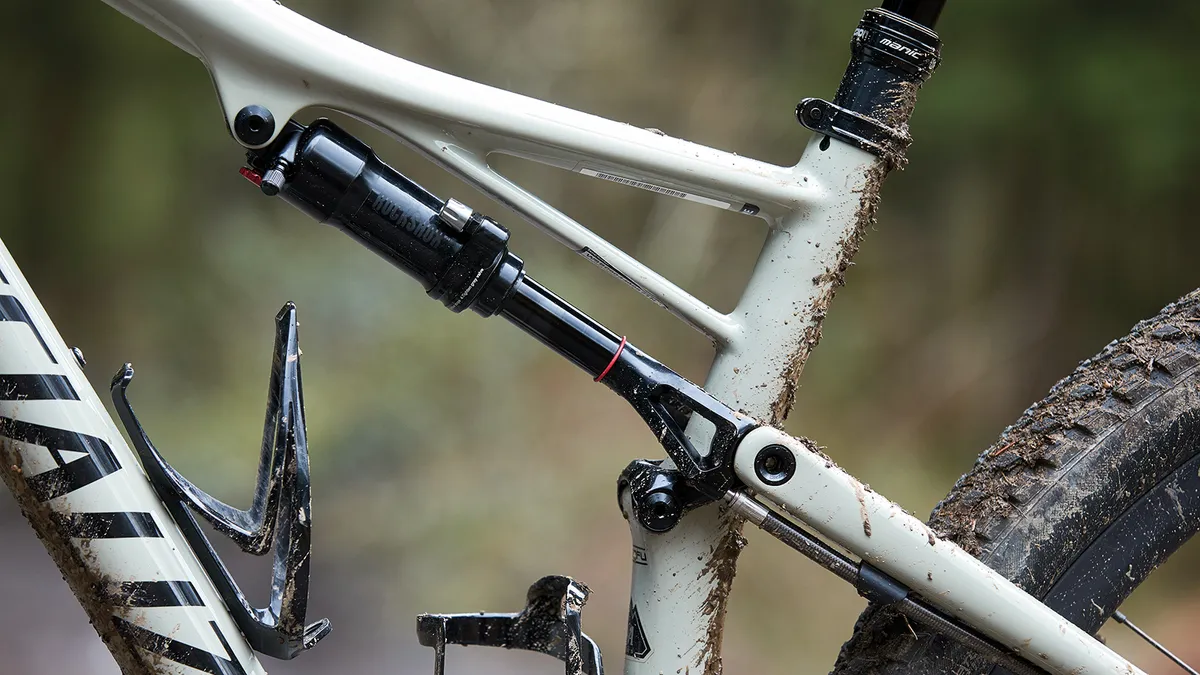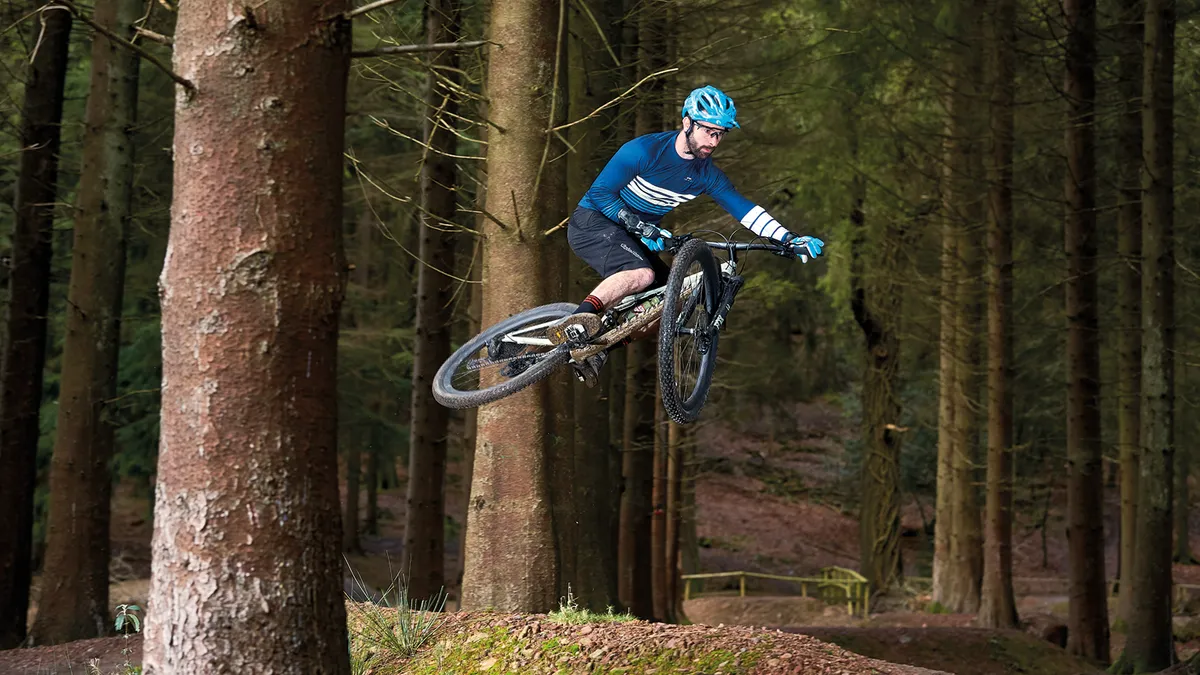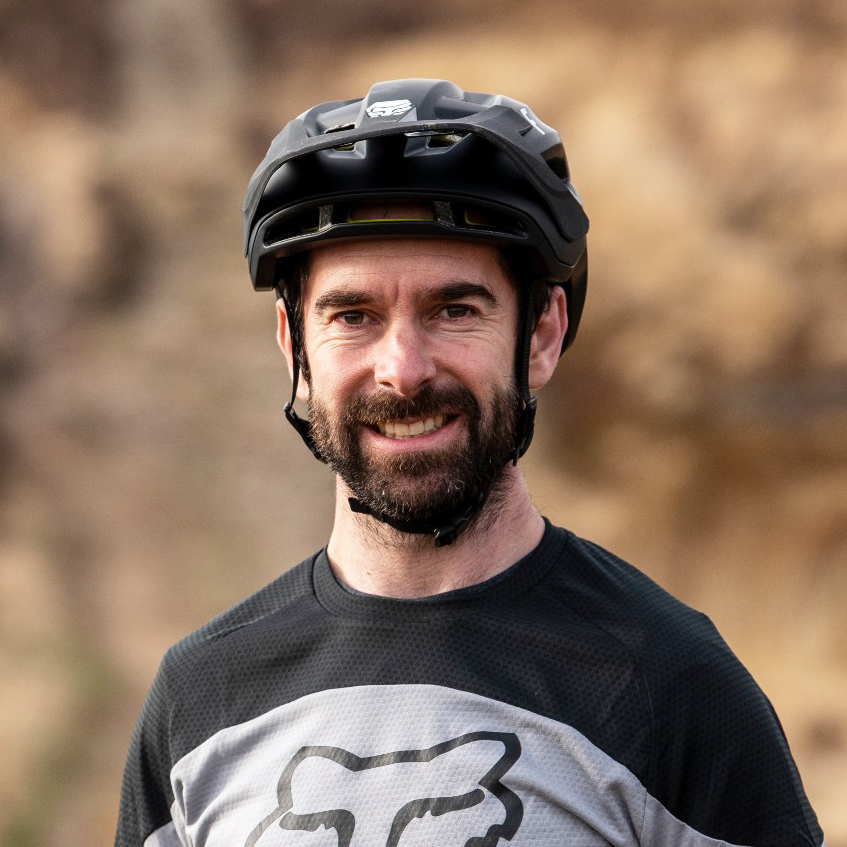When we tested Specialized’s cross-country race machine, the Epic, back in 2017, it was clear that the revisions the US brand had made had given it plenty of trail potential. And it’s this potential that the EVO version properly taps into.
- Mountain bike groupsets: everything you need to know
- The ultimate guide to mountain bike rear suspension systems
Specialized Epic Expert EVO frame
The Epic EVO shares exactly the same frame as its less rowdy counterpart, which, in the case of the Expert model, is constructed from Specialized’s FACT 11m carbon fibre.
It also uses the same, updated RockShox/Specialized Micro Brain shock, which adapts automatically to changes in terrain.
Specialized worked on increasing the Brain’s sensitivity before releasing the latest Epic, moving the Brain reservoir – which houses a tunable inertia valve – to just behind the rear axle.
It also revised the oil path from the shock to the reservoir (it now flows directly into and through the shock clevis before entering a hose connected to the reservoir) to improve how fast the rear suspension can react to bumps, without dulling any of the pedalling efficiency.
The BRAIN offers five indexed settings to choose from, ranging from soft to firm. Another change to the suspension is the absence of a pivot on the chainstay. Instead, the bike relies on flex (about 3mm of it) between the chainstay and seatstay to help deliver its 100mm (3.9in) of travel.
The biggest advantage that the EVO wields over the standard Epic for trail riding is its geometry. With a short-offset (44mm), 120mm-travel fork plugged into the frame, the head angle (and seat angle) are slackened by around a degree – my test bike measured in at 68 degrees.
This also extends the wheelbase to just over 1,138mm, around 10mm over the regular Epic. The increased fork travel does bump up the stack height though, which reduces the reach – my medium EVO had a reach of 423mm, compared to the 433mm offered by the regular Epic.
Specialized Epic Expert EVO kit

As the EVO build is designed to maximise the Epic’s trail riding potential, it’s no surprise to see it equipped with a dropper seatpost, courtesy of X-Fusion.
Front travel is bumped up to 120mm, and is delivered by Fox’s 34 Step-Cast Performance fork, complete with its ‘GRIP’ damper.
Both tyres are 2.3in wide for a bit of extra cushioning and traction (the standard Epic uses 2.1in rear rubber), while the 750mm alloy bar is paired with a 70mm stem, as opposed to the 80mm number found on the Epic.
Specialized Epic Expert EVO ride impressions
Despite the trail-friendly changes, the Epic EVO is still eager to get moving, and doesn’t take long to spin up to speed. The ride position is a little more relaxed than on the standard Epic, although the overall feel remains more ‘cross-country’ than ‘trail bike’.
With the Brain shock in any of its firmer settings, the EVO feels light as soon as you get on the gas, with plenty of support to push against while you put the power down.
You still get a dull clunk as the Brain wakes up when you head over bumps though, which takes some getting used to. Open the Brain up fully, and the EVO doesn’t feel quite as enthusiastic when pointed uphill, sitting deeper into its travel and bobbing slightly under power.
This does mean there’s no initial clunk when the rear wheel encounters its first hit though. I found that a middle setting gave me the best balance of pedalling efficiency and traction.

When you start tackling more technical terrain, the dropper post boosts trail flow and, despite its 100mm of rear wheel travel, the EVO feels very capable and lots of fun to ride.
Although the tyres aren’t heavily treaded, they’ll eke out enough grip to hold awkward lines, and roll rapidly on longer, flatter sections.
While the fork is from Fox’s ‘Performance’ range – a little surprising at this price – it feels comfortable and composed when you start pushing harder, keeping the wheel on track and the front end nice and calm. At this point it’d be good to have a slightly bigger brake rotor at the rear, just to boost power slightly, because the 160mm number specced feels a little lacklustre on longer descents.
Overall, while the Epic EVO doesn’t feel quite as stable or surefooted as the likes of Yeti’s SB100, it still delivers an exciting, fun ride that’ll please anyone looking for a great mile-muncher that isn’t afraid of getting out of shape when the trail gets ugly.
Specialized Epic Expert EVO specifications
- Sizes (tested): S, M*, L, XL
- Frame: FACT 11m carbon fibre, 100mm (3.9in) travel
- Fork: Fox 34 Step-Cast Performance GRIP, 120mm (4.7in) travel
- Shock: RockShox Micro Brain
- Shifter: SRAM GX Eagle
- Derailleurs: SRAM GX Eagle, 12spd
- Cranks: Truvativ Stylo
- Wheelset: Roval Control carbon rims on Specialized hubs
- Tyres: Specialized Ground Control GRIPTON 29x2.3in (f) and Specialized Fast Trak GRID GRIPTON 29x2.3in (r)
- Brakes: SRAM Level TL, 180/160mm Bar: Specialized Alloy Minirise, 750mm
- Stem: Specialized XC, 70mm seatpost: X-Fusion Manic 125mm dropper (M)
- Saddle: Specialized Body Geometry Phenom Comp
- Weight: 12.3kg (27.1lb), medium size
Specialized Epic Expert EVO geometry
- Seat angle: 73.8 degrees
- Head angle: 68.5 degrees
- Chainstay: 43.8cm / 17.24in
- Seat tube: 43.4cm / 17.09in
- Top tube: 59.9cm / 23.58in
- Head tube: 10.5cm / 4.13in
- Fork offset: 4.3cm / 1.69in
- Trail: 9.9cm / 3.9in
- Bottom bracket drop: 3.2cm / 1.26in
- Wheelbase: 1,132mm / 44.57in
- Stack: 60.5cm / 23.82in
- Reach: 42.3cm / 16.65in
- Price: £5,150 / $5.850 / AU$7,250


